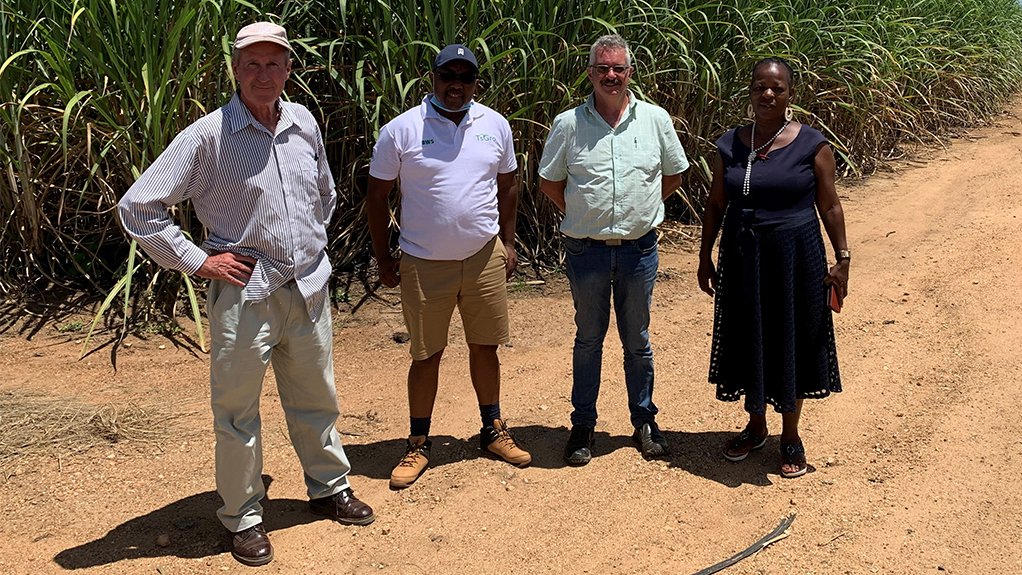Small-scale sugar growers are a vital contributor to the sugar value chain in South Africa and are the economic heartbeat of many communities across the country.
This is recognised by the South African Sugar Value Chain Master Plan which cites small-scale sugar grower retention and support as a key element in ensuring the industry’s long-term sustainability.
Large sugar producer RCL FOODS has been partnering with small-scale growers for many years to drive transformation in the sugar industry and support the communities that depend on it for their livelihoods.
In Mpumalanga’s Nkomazi region where most of RCL FOODS’ sugar is produced, 20% of its yearly cane supply comes from about 1 200 small-scale growers farming on small plots of communal land averaging around eight hectares each.
During the last season, these growers supplied 610 000 t of sugarcane to RCL FOODS’ Malalane and Komati mills, generating about R428-million in cane sales.
However, from 2005, small-scale growers in Nkomazi started to see a decline in their crop owing to a combination of ageing irrigation infrastructure and poor irrigation and management practices, exacerbated by a lack of access to finance.
To secure its long-term sustainability, RCL FOODS worked with small-scale growers to institute a holistic turnaround plan, targeting four key areas: ensuring proper institutional structures and governance were in place; reviving failing infrastructure and improving irrigation practices; driving a replanting programme; and providing holistic (technical, institutional and financial) support.
Key to the turnaround was the establishment of two joint ventures with the small-scale growers. The first was Akwandze Agricultural Finance, founded in 2006, which provides farmers with access to unsecured credit at affordable rates. The second was TsGro, founded in 2014, which provides farming and business support services to help the growers maximise production.
The small-scale growers served by Akwandze are grouped into 38 communal irrigation schemes, making them inter-dependent for running and maintaining the schemes.
Akwandze has leveraged several different funds since its inception, resulting in over R3-billion being injected into small-scale growers and land restitution projects through loans and retention savings.
“Sustainable and affordable funding is critical in the growth of the small-scale grower crop. Through Akwandze these growers have access to finance without providing land as collateral. We currently have a loan book of R374-million underpinning 633 small-scale grower loans, and we manage retention savings of over R100-million annually which enables farmers to reinvest in their crop,” says Akwandze CEO David Thomson.
TsGro, and particularly its Bulk Water Supply (BWS) service, has been a game changer for small-scale grower yields. The BWS service, a user-pay service that focuses on repairing and maintaining bulk irrigation infrastructure, enabled the growers to improve their cane yields even during the severe drought of 2016.
Through these interventions, the growers’ cane crop has increased from 350 000 t in 2013 to over 600 000 t in the latest season – and RCL FOODS wants to support small-scale grower growth even further.
In addition, at the heart of RCL FOODS’ positive impact on land reform is its solid partnerships with growers, government, social partners and its non-profit organisation, the DO MORE Foundation.
These partnerships have proven especially critical in providing coordinated aid to grower communities impacted by the recent tropical cyclone Freddy which recently swept through the Nkomazi area.
Days of heavy rainfall in February this year caused the Komati and Lomati rivers to swell and burst their banks, causing significant damage to homes, access roads, cane fields and farm infrastructure.
“Not only were many rural communities left without food and shelter, but many small-scale growers face economic hardship owing to the loss of crops, pump stations and irrigation infrastructure.”
In collaboration with the DO MORE Foundation, Gift of the Givers, the local municipality and the South African National Defence Force, RCL FOODS was able to contribute to emergency food relief for 1500 households across 35 villages. Key to this was the provision of over 40 t of maize meal and nearly 6 t of sugar through a combination of its own donations and funding from DO MORE Foundation partners.
Alongside this, the company has been working to help small-scale growers resume their agricultural activities by helping to restore irrigation.
With 95 pumps and motors damaged and electrical switchgear and control panels destroyed, a key challenge is to get the pump stations operating as soon as possible to avoid an artificial drought situation.
This requires roads to be cleared to gain access to the pump stations; motors to be retrieved and repaired; access roads to be rebuilt; and new control panels to be built to run the motors. So far roads have largely been cleared and two projects are able to begin irrigating again.
Edited by: Zandile Mavuso
Creamer Media Senior Deputy Editor: Features
EMAIL THIS ARTICLE SAVE THIS ARTICLE
ARTICLE ENQUIRY
To subscribe email subscriptions@creamermedia.co.za or click here
To advertise email advertising@creamermedia.co.za or click here













